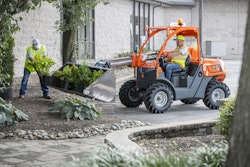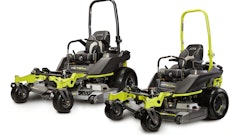I’ve been in this industry for nearly 20 years. As both the CEO of a landscape contracting business and the CEO of a horticultural buying and selling platform (Plantbid), I’ve seen the industry continuously evolve. In particular, I’ve witnessed firsthand how technology has helped develop this industry and make us more productive as a whole. From the use of phones for deliveries and drivers, to the management of inventory, to the use of email and internet for sales and marketing, to computerized irrigation systems, things sure do look different from 1990s.
Unfortunately, what I’ve also seen is that time and time again there is a hesitance to embrace new technologies. Sure change can be scary, especially within a business environment. Nevertheless, change can also be good, as history has shown us. Embracing new practices, new tools, new techniques or technologies can help the way our industry operates.
Let’s look at some of the common myths and misconceptions associated with technology in the landscaping industry:
1. Technology eliminates the personal touch in my business. It certainly doesn’t have to. For example, if you are using email to create more efficient communications, it doesn’t mean you need to eliminate calls and in-person meetings with your buyers and/or growers.
An excellent technology tool that actually allows for greater personal interaction is Olark—it allows you to interact with your website visitors directly. Regardless of whether you are at a computer or using a smartphone, you can create instant connections with buyers looking to find out more about your business.
Technology exists to help you be more productive, not hinder your relationships with your customers. Just like the tools we use each day in our trade, technology is another set of tools that helps us work smarter.
2. Using technology will subject me to being hacked. Technology is already part of your business in any number of ways. Making technology-enabled tools like social media, email, marketing platforms, phone apps, etc. an active part of your business is not going to lead to being hacked. By embracing the technologies that make sense for you, you limit your risk and add horsepower to your business operations.
Here are a few extra tips to help give you peace of mind as you make technology a part of your business planning:
- Keep your computer up to date. All software companies provide security updates to their software, and most make it very easy to allow it to auto-update on its own.
- Think before you click. If you receive a message that doesn’t feel right, then take the extra second to think about whether it’s something you should be following-up on or simply “marking as spam” and sending to the trash folder.
- If you are uncomfortable sharing a piece of sensitive information via email or the web, then don’t do it. You are in control of your own information, so go at whatever speed makes the most sense for you.
- Finally, and perhaps most importantly, create a strong password and use different passwords for different sites. Worried about forgetting too many passwords or passwords that are too complicated? There are a number of great products on the market, like 1Password, to help you manage and secure your accounts.
3. Learning a new tech tool is way too time consuming. The truth is that there is a learning curve associated with everything. However, you have to compare the time investment in learning a new tool to the time saved once on-boarded. Here’s an example: The typical plant sourcing process is just not efficient; gathering and sifting through hundreds of availabilities is a massive time suck. It’s time that the industry considers trying out more effective solutions.
There are several resources available to buyers to help search databases and more efficiently purchase materials. Advanced technology platforms such as Plantbid allow you to do just this. Think about the possibilities and the time you’ll add to your day if you open your eyes to new ap-proaches.
Key takeaway? Be open, adopt new technology and don’t be afraid to step outside your comfort zone—it’s in the interest of driving your business.
Insights from Cameron Cantrelle, co-founder and CEO of Plantbid


















